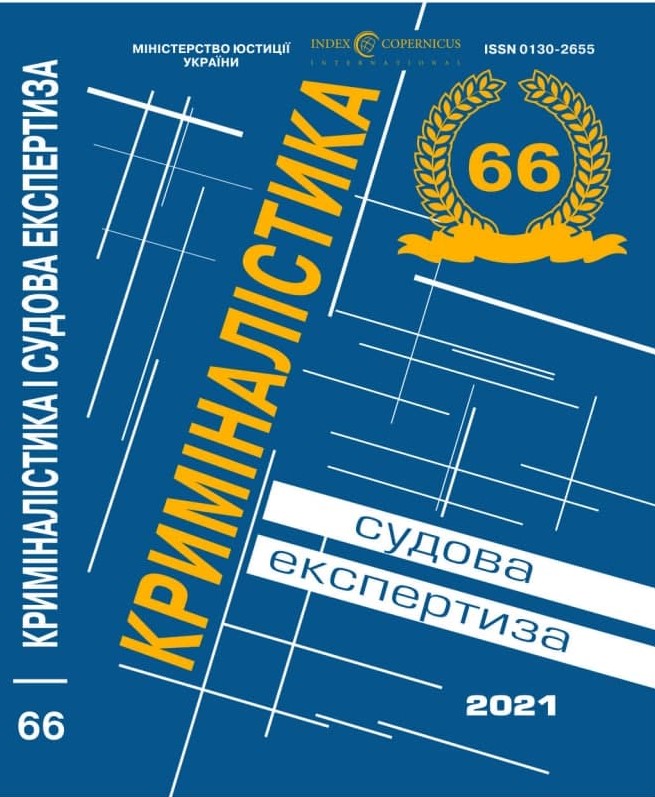
DOI: https://doi.org/10.33994/kndise.2021.66.33
A. Kofanov, N. Pavlovska, M. Kulyk, Yu. Tereshchenko, H. Strilets
The article deals with a number of issues of investigation and prevention of corruption crimes in the field of public administration. The purpose of this paper is to analyze challenges in investigating and preventing corruption crimes in the field of public administration. The relevance of this study lies in the fact that the variety of forms of bribery, its penetration into various spheres of activity: economic, financial, entrepreneurial, educational, requires new ways to prevent and counteract these criminal manifestations, the creation of pragmatic recommendations aimed at improving their prevention and investigation.
The study was carried out based on the method of system analysis and generalization of information obtained in the course of the study, questionnaires of different categories of law enforcement officers. They conduct pre-trial investigation of these crimes, as well as reports of the Expert Service of the Ministry of Internal Affairs of Ukraine, the National Police of Ukraine, the National Anti-Corruption Bureau of Ukraine, and Forensic Science Institutes of the Ministry of Justice of Ukraine for 2016-2019, the legal framework on liability for corruption offenses.
The most relevant motives and methods of committing corruption crimes have been analyzed and it has been established that bribery and corruption rank first among economic crimes, and the high level of corruption of state bodies in various spheres of public life contributes to the increase in the number of such crimes. The study found that civil servants through abuse of office, as well as obtaining undue benefits predominantly commit corruption crimes.
The ways of improving the forms of combating corruption in public authorities are proposed, which will reduce the level of corruption in the public administration system, in particular, the implementation of measures aimed at enhancing information exchange between non-governmental organizations, the media, the public and local authorities, and public authorities.
Key words: special knowledge, specialist, written explanation of a specialist, annex to the protocol, document, procedural sources of evidence, pre-trial investigation, procedural actions, criminal proceedings.










